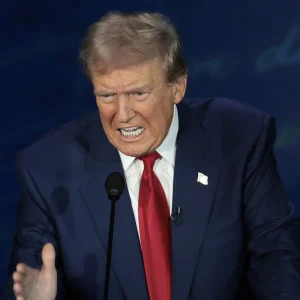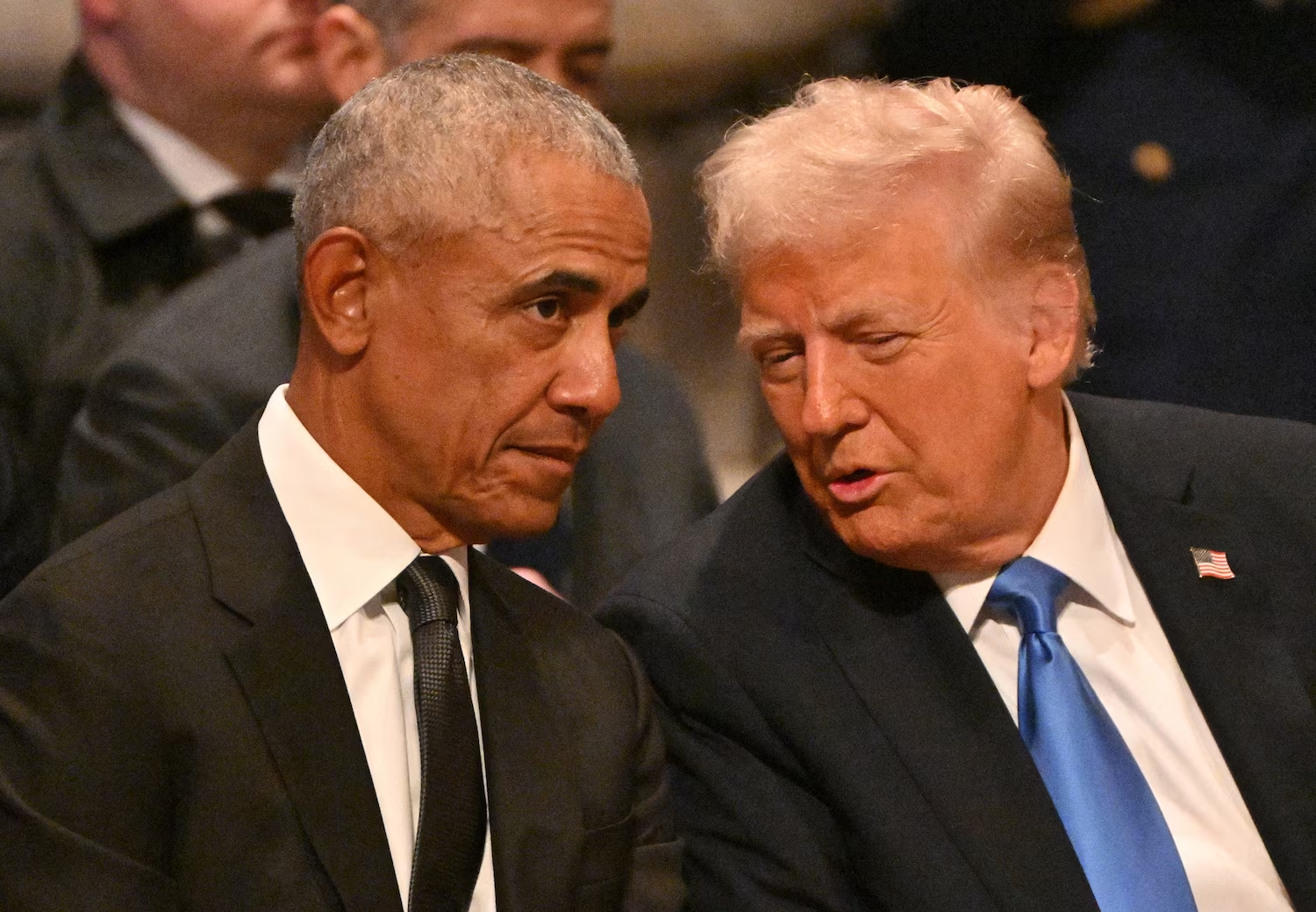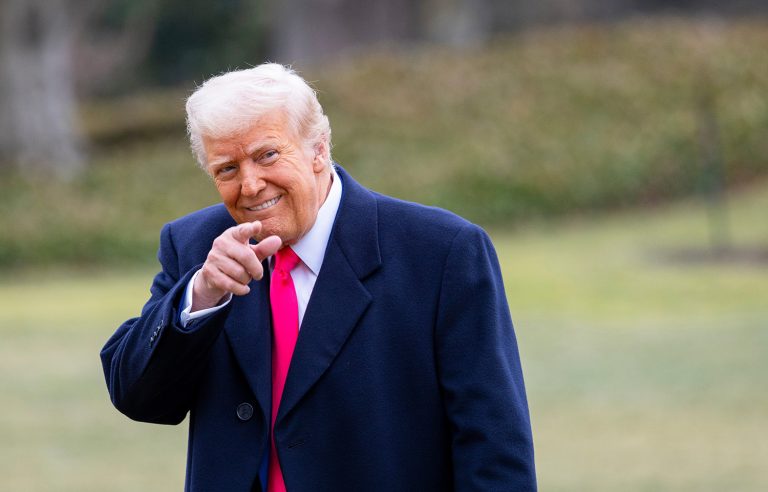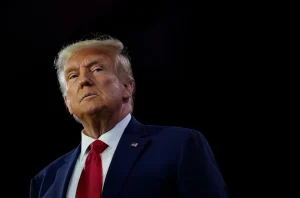A Moment That Caught Washington’s Attention
Barack Obama’s surprise appearance at a live recording of Pod Save America has sparked headlines across the nation. What began as a casual congratulatory note for New York’s newly elected mayor, Zohran Mamdani, quickly turned into a pointed moment of political commentary.
The former president, known for his eloquent restraint, seemed to drop that filter — if only briefly — when he applauded the values represented by Mamdani’s victory while alluding to the “cruelty” and “entrenching power” gripping Washington.
The moment wasn’t just about praise. It carried undertones unmistakable to anyone following the tension between Obama’s vision for America and the current administration’s combative tone under President Donald Trump.
The Win That Redefined New York Politics
Mamdani, 34, made history on Tuesday night. The Ugandan-born, South Asian American, and Muslim democratic socialist clinched 50.4% of the vote to become New York City’s next mayor.
His victory over high-profile figures — including former Governor Andrew Cuomo and Republican contender Curtis Sliwa — sent a message about the city’s appetite for progressive change.
For the first time in decades, New York’s leadership will be shaped by a figure representing not just economic progressivism but cultural and generational change.
Mamdani’s platform calls for taxing the wealthy, expanding legal protections for immigrant communities, and strengthening sanctuary laws — policies that directly challenge the Trump administration’s agenda and the billionaire class it often defends.
Obama Steps Into the Spotlight
When Obama appeared unannounced during the Thursday night podcast taping, the audience erupted. The 44th president took the stage with his familiar calm demeanor, but his message was anything but subtle.
“We had a good night on Tuesday,” he said to the cheering crowd, referencing Democratic victories beyond New York — including key gubernatorial wins for Abigail Spanberger and Mikie Sherrill. “It was a good reminder that the American people are paying attention.”
Then, his tone shifted. Without naming names, Obama made it clear who he was talking about.
“They don’t want cruelty,” he said. “They are not looking for people at the top trying to entrench themselves in power.”
The line drew loud applause. But it was the next few sentences that sealed the moment.
“Our job,” he continued, “is to keep everyone engaged. We want conversations about dignity and respect for all — that’s what this country should be built on.”
For many, that sounded like more than a celebration. It was a direct response to the rhetoric coming out of the Trump White House in recent months.
Between the Lines: Obama’s Subtle Shade
Obama never mentioned Trump by name — but he didn’t have to.
The words “cruelty” and “entrenching power” were enough to set political commentators ablaze online. Within hours, clips of the speech had flooded social media, with many noting how Obama’s tone sharpened whenever he spoke of leadership, empathy, and governance.
“He’s back to being the conscience of American politics,” one political analyst wrote on X. “This wasn’t just about Mamdani. It was about what kind of country voters want to live in.”
Others pointed out that Obama’s message seemed to echo the frustrations of voters weary of polarization and economic inequality — two issues Mamdani’s campaign had built itself around.
Why Mamdani’s Win Matters So Much
Mamdani’s election represents more than a political shift. It’s symbolic of how much the American electorate has changed in just a few years.
Born in Kampala, Uganda, to Indian parents, Mamdani came to New York as a child. His story — an immigrant who rose from community organizing in Queens to leading one of the most influential cities in the world — stands in stark contrast to the traditional political establishment.
Supporters describe him as a “new generation” leader — young, policy-driven, and unafraid to challenge the economic systems that have defined U.S. politics for decades.
His focus on taxing the wealthy, increasing affordable housing, and funding community programs is expected to set off a political tug-of-war between New York City and the federal government.
And that, insiders say, is where Obama’s message may have landed its sharpest edge.
The Trump Factor
Trump has been openly critical of progressive city leadership, calling it “chaotic” and “anti-American.” In previous remarks, he dismissed Mamdani’s policy ideas as “socialist fantasies” and accused Democrats of “turning cities into disaster zones.”
But Obama’s praise for Mamdani — particularly when framed around empathy and dignity — seemed designed to draw a contrast.
The former president’s words painted two visions of America: one driven by compassion and reform, and another ruled by power and division.
A Call for Unity — and a Challenge to Power
Before leaving the stage, Obama offered a final thought that resonated deeply with the audience.
“Yes, there are fights to be fought,” he said. “But deep down, there’s something we share — something extraordinary. And that’s what we can’t afford to lose.”
It was both a warning and a rallying cry — a reminder that political power, no matter how entrenched, is temporary.
And as Mamdani’s election proved, the appetite for change remains strong in American cities.
The Broader Message
While many took Obama’s comments as an implicit jab at Trump, others saw it as something bigger — a message about the state of American democracy.
In a time when political discourse is louder and meaner than ever, Obama’s choice to highlight empathy, inclusivity, and shared purpose struck a chord.
He reminded his audience that leadership is not just about policy but about how leaders make people feel — especially those who’ve felt unheard.
Mamdani’s election, Obama suggested, was proof that voters are still willing to choose hope over hostility.
And even though Trump didn’t respond directly, conservative commentators quickly took notice, calling Obama’s remarks “thinly veiled campaign messaging.”
But for Obama, the message seemed clear: the next generation of leadership doesn’t have to sound like the last.

James Jenkins is a celebrated Pulitzer Prize-winning author whose work has reshaped the way readers think about social justice and human rights in America. Raised in Atlanta, Georgia, James grew up in a community that instilled in him both resilience and a strong sense of responsibility toward others. After studying political science and creative writing at Howard University, he worked as a journalist covering civil rights issues before dedicating himself fully to fiction. His novels are known for their sharp, empathetic portraits of marginalized communities and for weaving personal stories with broader political realities. Jenkins’s breakout novel, Shadows of Freedom, won national acclaim for its unflinching look at systemic inequality, while his more recent works explore themes of identity, resilience, and the fight for dignity in the face of oppression. Beyond his novels, James is an active public speaker, lecturing at universities and participating in nonprofit initiatives that support literacy and community empowerment. He believes that storytelling is a way to preserve history and inspire change. When not writing, James enjoys jazz music, mentoring young writers, and traveling with his family to explore cultures and stories around the world.









